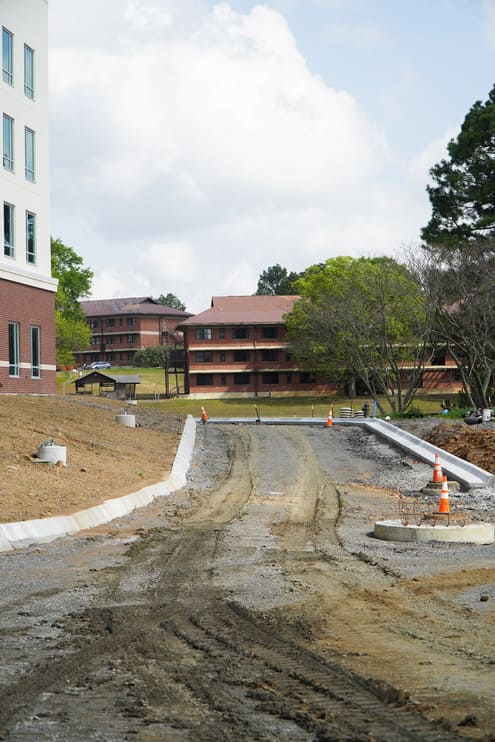Insulation has a massive impact on the comfort of a building’s interior, but outside of the construction industry, most people don’t spend much time thinking about it.
Any indoor space that you spend time in has most likely been insulated to some degree. Insulation creates indoor spaces that are comfortable and energy-efficient, and it’s an essential component of any construction project.
Enhancing energy efficiency
At some point during your childhood, were you ever scolded for leaving a door or window open too long? Do the words “We’re not paying to heat the whole neighborhood” ring a bell? In that scenario, the door or window is an insulating component of an indoor space– preventing cold outdoor air from coming inside and demanding higher energy usage from the home’s HVAC system.
Insulation is installed within the exterior walls of a building, acting as a thermal barrier to prevent the transfer of heat between the inside and outside of a building. This results in reduced energy consumption for heating and cooling, leading to lower utility bills and a smaller carbon footprint.
Insulation helps to maintain consistent indoor temperatures, reducing the strain on heating, ventilation, and air conditioning systems.
This is probably something you’ve noticed if you have lived in both older and newer buildings. Older buildings can sometimes tend to have poorer insulation, leading to higher energy bills, while most newer buildings are required to meet certain criteria for construction, including proper insulation.

Improving thermal comfort
Insulation is very important for maintaining thermal comfort within buildings. It helps to maintain regular indoor temperatures, creating a more pleasant and consistent environment for living or working.
In colder months, insulation keeps the cold air out and the warm air in, while in hot weather, it acts as a shield against excessive heat. This means that residents or occupants can enjoy a comfortable atmosphere year-round, without experiencing drastic temperature fluctuations.
Sound dampening and acoustic comfort
Insulation isn’t just about keeping a building warm and cozy during the winter months. It also has a big impact on acoustic comfort! Adequate insulation can effectively dampen, or muffle, sound– reducing noise from both the outside environment and adjacent rooms.
This feature is especially valuable in residential and commercial settings, where peace and quiet are valued. Again, this is something you’re probably acutely aware of if you’ve ever lived in an older apartment building; the insulation (or lack thereof) can make a huge difference in your quality of life and sleep.
Proper insulation ensures that you can enjoy your living space without any disturbances, and that offices and workplaces maintain a conducive environment for concentration and productivity.

Condensation and moisture control
Another lesser-known function of good insulation: preventing condensation and controlling moisture within a building. When warm, moist air comes into contact with a cold surface, it can create condensation, which in turn can lead to hazardous mold growth and structural damage.
Properly installed insulation helps to maintain consistent temperatures across a building’s surfaces, reducing the risk of condensation. It also acts as a moisture barrier, keeping humidity levels in check and protecting against potential moisture-related issues.
Insulation is important
Insulation is a necessary component of construction, because it can greatly impact a building’s energy efficiency, thermal comfort, and sustainability over time. Understanding the importance of insulation, and using the correct materials and techniques in its installation, can result in major long-term savings and environmental benefits, plus a more comfortable living or working environment.
If you’re looking for a career with a company who values comfort and safety both for future building occupants and employees, look no further than the careers page at RedStone Construction Group!


Recent Comments